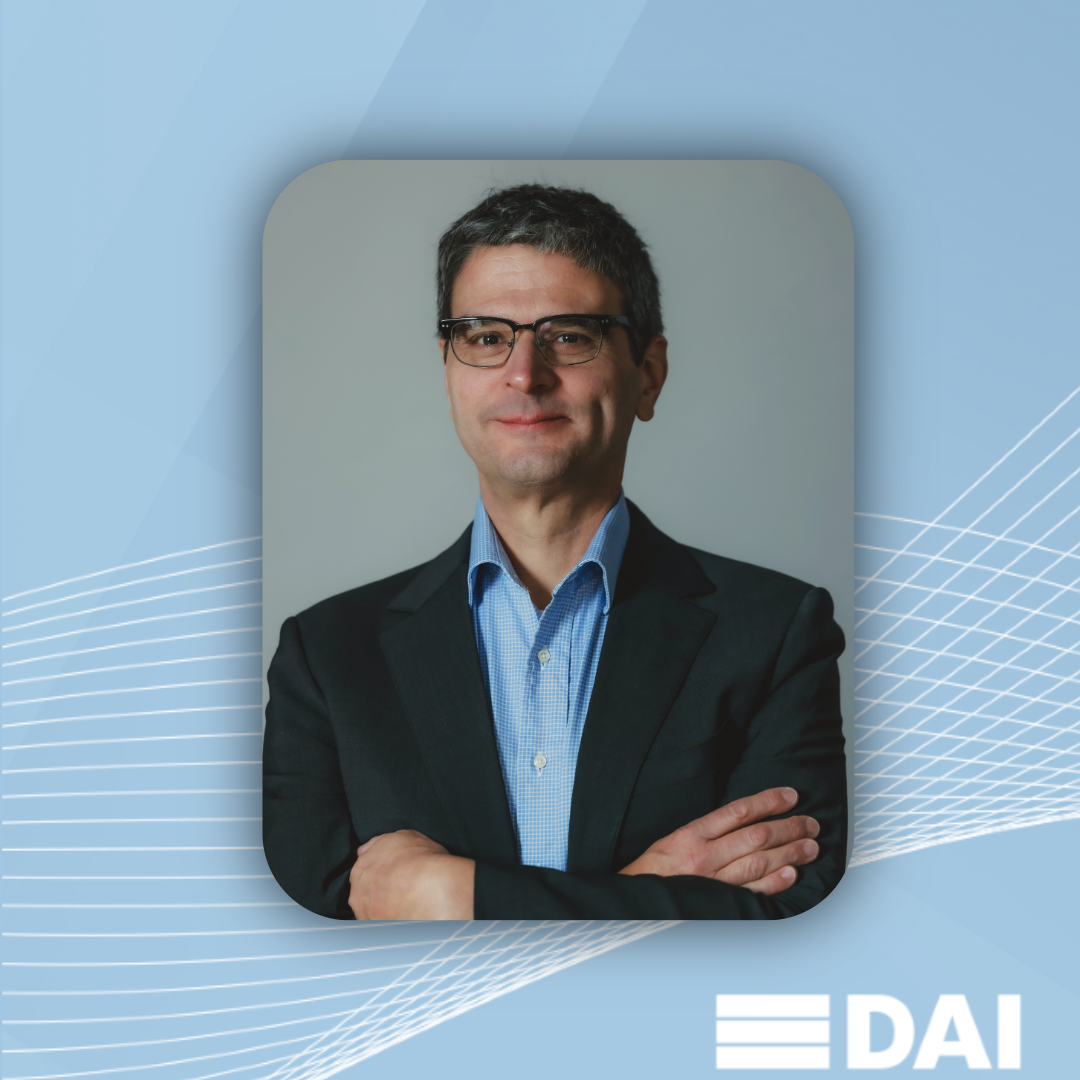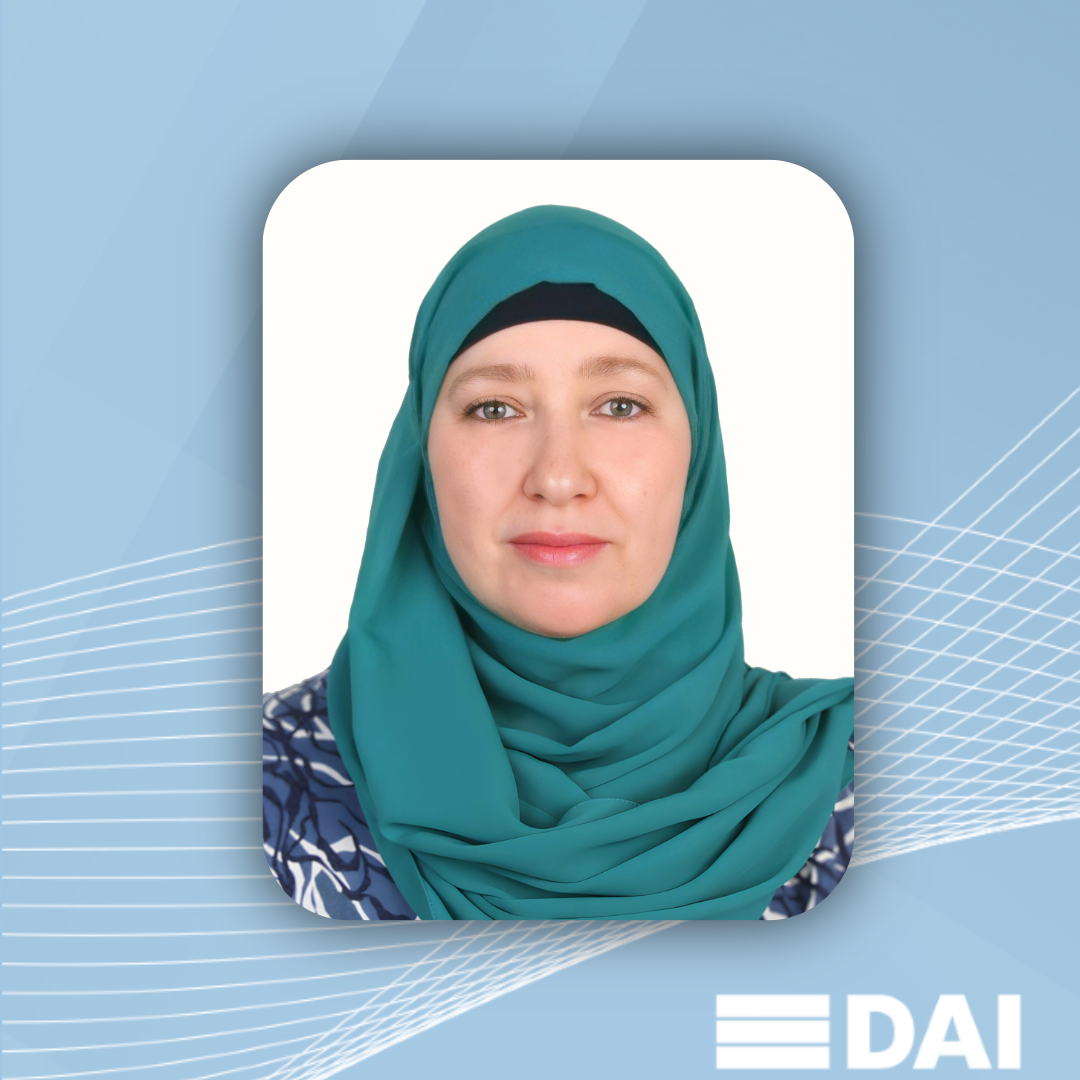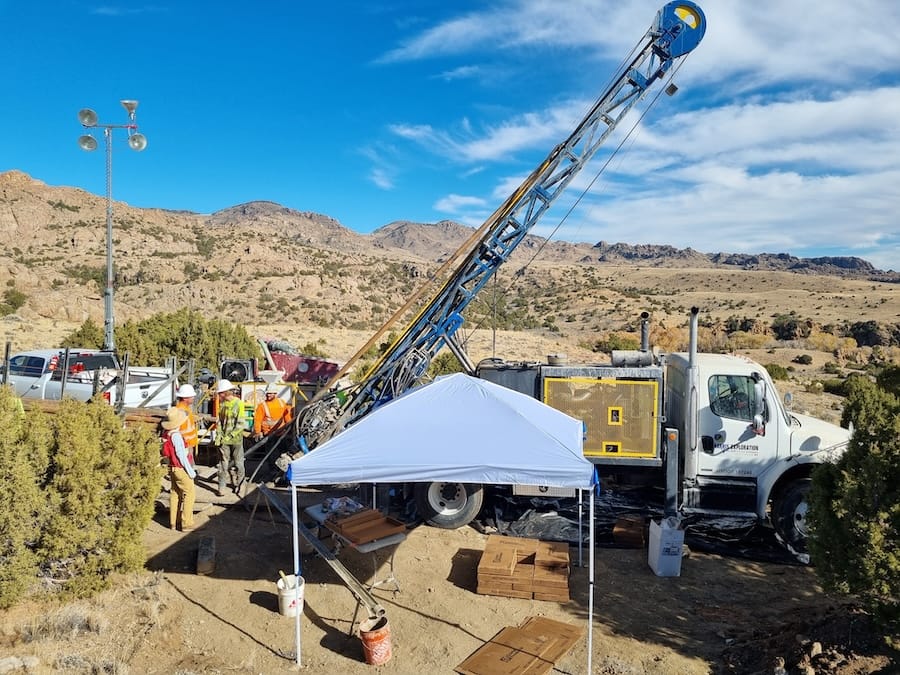When participants step into a DAI Local Content Masterclass, they’re not just entering a training session, they’re engaging with professionals who help shape the systems they’re learning about. That’s the foundation of DAI’s approach: equipping stakeholders with tools, data, and frameworks that are rooted in practical delivery and adapted to real-world conditions.
Among the group of professionals leading this work is Patrick Henry, Vice President and Head of DAI’s Sustainable Business Group (SBG). With more than 25 years of experience contributing to local content solutions across diverse geographies and sectors, Henry offers a perspective shaped by decades of work in project implementation and supply chain development.
“Having skin in the game changes how you teach,” he notes. “When you’ve been the one responsible for designing and delivering a local content strategy, it forces you to be realistic, practical, and always focused on impact.”
Henry has lived in five countries on four continents and worked in more than two dozen countries, supporting local businesses as they navigate opportunities in sectors ranging from oil and gas to agriculture and logistics. His experience spans conflict-affected environments, early-stage extractives development, and the creation of digital tools that help small firms access global supply chains. This knowledge provides a reference point for his contributions both in project delivery and in the classroom.
Global Experience, Practical Impact
Before taking on his current leadership role, Henry worked across a range of contexts that required tailored, often collaborative, local content approaches. His experience ranges from workforce assessments and communications strategies to supplier registration systems and local content frameworks. Across engagements with governments, international donors, and private sector partners, his focus has remained on designing interventions that reflect the political, economic, and sector-specific dynamics of the markets he serves.
This work often contributes to outcomes that extend beyond individual projects: enterprise development centers, digital platforms, industry partnerships, and—most importantly—a stronger, more confident private sector. This long-term impact is the result of a consistent, principled approach to local content that prioritizes sustainability.
“I've always been drawn to the challenge of building something that sticks, something that outlasts the project timeline,” he says. “That might mean setting up a commercial aquaculture venture in Guyana or designing a supplier development program in Mozambique. In either case, it’s about building capacity that endures.”
That mindset continues to guide Henry’s work at DAI, where he leads supply chain analytics and strategy development for clients ranging from national governments to global energy companies. He remains involved in implementation, contributing to technical tools and guiding teams working across local content, investment facilitation, and private sector development.
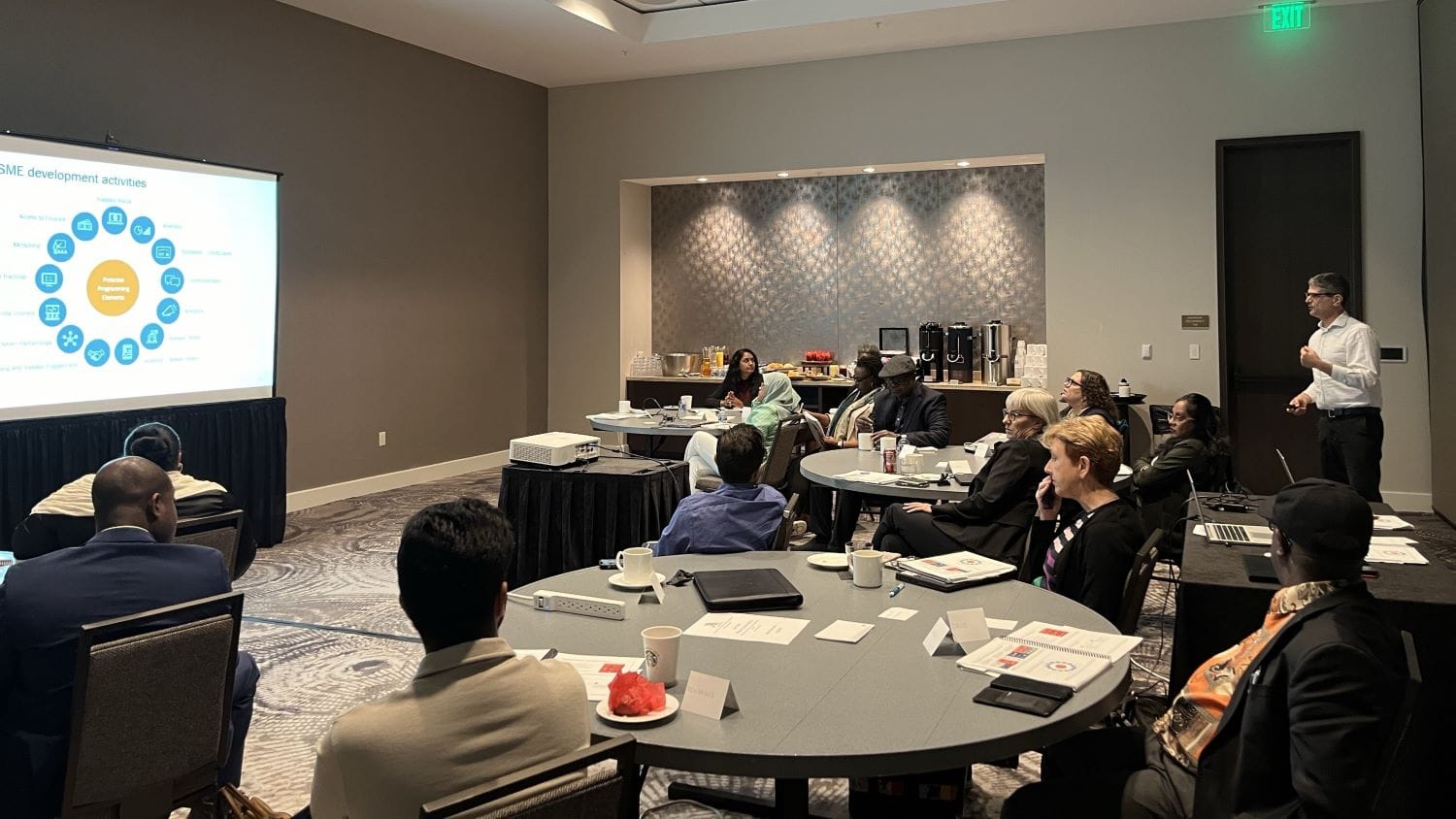
From Project Implementation to Real-World Learning
DAI’s Local Content Masterclasses are developed from the company’s applied experience, drawing directly from current and past projects across sectors and regions. Each course is built on a foundation of current data, tried-and-tested tools, and case studies. For Henry, this approach ensures that content stays grounded in what’s workable rather than theoretical.
“Every program I work on is shaped by the real operating context—political, social, economic, and sectoral,” he says. “There’s no one-size-fits-all when it comes to building sustainable local content.”
Lessons from Guyana and Mozambique
Two notable examples of Henry’s contributions are in Guyana and Mozambique, countries with rapidly developing energy sectors and complex local content challenges.
In Guyana, Henry helped establish the Centre for Local Business Development during the country’s rapid emergence as a major oil producer. The Centre is now a key entry point for local businesses seeking to participate in the sector, offering training, advisory services, and supplier development tools. It has become the country’s leading platform for supplier engagement and has helped hundreds of local firms raise their standards, obtain certifications, and win contracts.
“The Centre succeeded by staying hands-on,” he says. “It trained businesses in how to compete. But more than that, it helped shift their mindset, from subcontractors to long-term partners in development.”
In Mozambique, Henry’s approach was tailored to a context still awaiting developers’ final investment decision (FID). In this pre-FID phase, readiness and risk were still evolving. He helped guide the launch of MozUp, an enterprise development center that supports Mozambican suppliers with the knowledge, tools, and resources needed to work with large operators. MozUp now plays an important role in Mozambique’s broader ecosystem of local content and supplier development.
In both countries, data-driven diagnostics informed the design of interventions. Tools such as industrial baseline studies, workforce assessments, and market-readiness evaluations helped identify gaps, shape programming, and guide decision-making. Many of these tools are now featured in DAI’s Masterclasses to give participants a practitioner’s insight into how strategies are developed, adapted, and refined.
Training That Builds Capability
DAI’s Local Content Masterclasses are designed to support professionals who need to translate policy into practice, whether it’s a multinational firm navigating localization requirements or a national government developing procurement incentives. For Henry, training is a natural extension of project implementation.
“We want participants to understand the tradeoffs, the political dynamics, and the market signals to be able to make informed decisions. It’s about more than following a checklist,” he says.
Designed for knowledge sharing and solution-building, these sessions dive deep into how policies translate into practices, how to balance stakeholder interests, and how to design incentives that drive supplier performance. Participants leave with both frameworks and a roadmap grounded in real-world experience.
“I’ve spent years drafting policies, building platforms, securing financing, and dealing with the fallout when things go sideways,” Henry says. “That’s the kind of experience you can’t fake, and it changes how you teach. It makes you honest. It makes you pragmatic.”
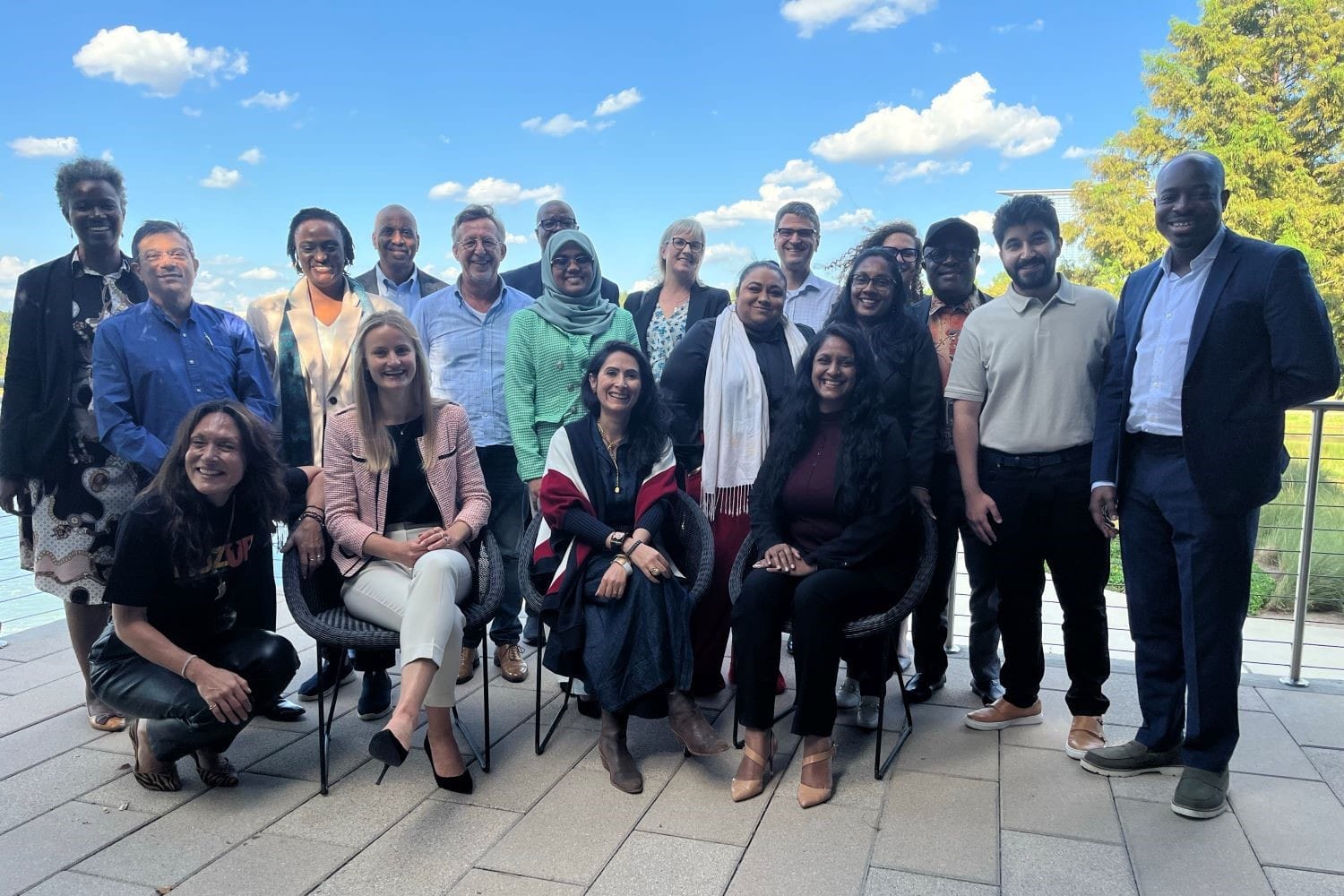
Proven Strategies, Delivered by Practitioners
As industries and governments intensify their focus on resilient supply chains and long-term value creation, local content strategies are becoming increasingly important and increasingly complex. Organizations are looking for support from trainers who understand not just what works, but why it works.
DAI’s Masterclasses are structured with this in mind. When training is led by people accountable for delivery, the insights are more relevant, the guidance more credible, and the outcomes more achievable.

